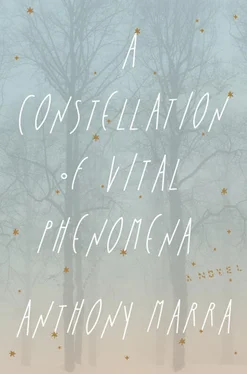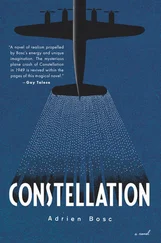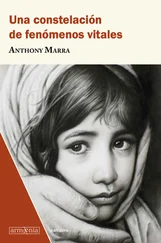She nodded and he peeled back the blanket, her skin whiter than a Russian’s. Sometimes Akhmed carried her outside to the rocking chair and she would sit without rocking, swathed in blankets even in the sticky summer months. Khassan turned her so her hair hung off the side of the bed and into the water. The soap gave a fine lather, and he ran his fingers through the water, and broke the bubbles against her scalp, and washed away the grease and dead skin. After it was washed and rinsed, he wrapped her hair in a towel and propped her upright against the headboard.
“You look like a sheikh with that turban around your head,” he said.
“Why are you here?” she asked.
“I’m here to finish telling you a story.”
She smiled, pleased with his answer. “You might have to repeat things. You may not know but my memory isn’t what it once was.”
He began where he had stopped, on the steppe, where the next morning he and Mirza boarded the train from Kazakhstan to Chechnya. Eldár was a ghost town when the survivors among its former residents returned. Soviet soldiers tasked with building a new thoroughfare had uprooted all the tombstones from the village cemetery. Khassan entered the village on a street scrawled with epitaphs. Dust added an extra half centimeter of height to the tabletop, the shelves, and floor. The air was too thick to breathe, and so on his first night home, he slept outside. The next morning, under an awning of bulbous gray clouds, he buried the brown suitcase in the back garden.
He was thirty-one years old and enrolled in the history doctoral program at Volchansk State University. On the day of Mirza’s wedding, he barricaded himself in the university library. He had considered kidnapping her, as Chechen grooms had done since time immemorial when failing to receive the approval of a bride’s parents. But he didn’t want to earn a reputation as a bride kidnapper, particularly not among his professors, and besides, it was too late. That afternoon she would marry the botanist she’d been betrothed to since her ninth birthday, and if botany wasn’t bad enough, the man also had a clubfoot and a collection of pressed flowers. All through the day Khassan read thick philosophical tomes, but not one explained the injustice of a world in which he would lose Mirza to a clubfooted botanist with a passion for pressed flowers. The botanist was a decent man, but Khassan was in love, and thus capable of infinite hate.
About the time he began writing the book that would occupy his life, Khassan embarked on a smaller, secondary project of historical reclamation. On notecards he recorded the recollections friends, neighbors, and distant relations had of his family, and pinned them to the walls of what had been his sister’s room. All were small and ordinary — his sister’s hiccupping laugh, his father’s wish for the smallest denominations of change so his pockets would jingle like a rich man’s — but when he read them, alone in the house they once had shared, these unremarkable memories returned with an unforeseen force. When one wall was covered from floor to ceiling, he began populating the room with artifacts of Mirza, as though she too had receded into the past that had claimed his family. He followed her. When, at the bazaar, she purchased a ball of ruby-red yarn, he purchased the tangerine ball adjacent; when she wore a gray cardigan with silver buttons, he found that same gray cardigan, with brass buttons. While the clubfooted botanist collected flowers, Khassan collected his wife. The notecard-papered room soon filled with the headscarves she’d never worn, the cigarettes she’d never smoked, and in the evenings he would flop into the teal-striped armchair, so similar to the navy-striped armchair in her living room, and would read while sipping from a teacup a centimeter narrower than hers, and for a few moments, if lucky, he would forget and she would be standing just out of sight, refilling the samovar, or perhaps knitting a pair of tangerine mittens, and his happiness became the one real artifact in the room.
So it went. Seven years passed before he spoke again to the real Mirza, on an autumn afternoon as uninspiring as every afternoon that autumn, when the blast of a Volchansk bus horn broke the silence. He had just left the library in a frantic search for matches when he heard the punched blare. He turned, and had the Prophet himself stood there, he would have been no more surprised. She wore the gray sweater; the silver buttons really did look better than brass. The flailing ends of a ruby-red scarf tossed at her shoulders. The bus had braked less than a meter from where she stood; he could have bowed down and blackened his lips on that hallowed pavement. Their eyes met. She blushed; not with surprise or astonishment, but with the downcast embarrassment of one who has been caught.
He invited her to the university cafeteria. They picked awkwardly at a pastry plate, and she tried to convince him that she had come to the city for a dental appointment, and he gave assurances that he believed her. But her sheepishness dissolved as quickly as the spoonful of sugar in her second cup of tea. Her short, filed fingernails darted across the partition of silverware. They spoke for two hours, and when the cafeteria lady’s disapproving glances lingered too long, Mirza asked for a tour of the library. She hurried from one stack to the next, wide-eyed and awed, and only later, when he’d checked out a dozen books for her, did he learn that this was her first time in a library. He carried them to his office, which did not, he could safely say, have the same impact. It was, quite literally, the broom closet. The brooms were gone — he’d thrown them out when he’d been assigned the office — but the closet was barely wide enough to accommodate the smallest university desk, which was wedged in so tightly tissue paper couldn’t have slipped between it and the wall. Her days were empty, she confessed; would it be possible to come to the university a few days a week and read in his office? This Mirza was entirely different than the younger one who had smashed Stalin’s plaster nose with the heel of her boot. Perhaps he had changed, too; but he loved her no less.
Twice a week they met at the corner, mindful of oncoming buses. He saw her in the gray sweater with the silver buttons, the blue sweater with the fake ivory buttons, the green sweater with no buttons. They passed a cigarette back and forth, and when he felt the damp of her lips on the filter, the world became big and beautiful. His office could only accommodate one chair, so she would read her books there while he worked in the library. One afternoon he returned a half hour earlier than usual and found her hunched over a huge stack of typewritten paper. From the flipped-over pages, he could see that she was at least two-thirds through his manuscript. A breeze would have broken him. “This is wonderful,” she said, standing, as if baffled that he was capable of anything wonderful. His tilted gaze found her ankles. They were lovely ankles. She praised his book and he embraced her from gratitude rather than lust, but she didn’t let go. Neither did he. She kissed his cheek, his earlobe. For months they’d run their fingers around the hem of their affection without once acknowledging the fabric. The circumference of the world tightened to what their arms encompassed. She sat on the desk, between the columns of read and unread manuscript, and pulled him toward her by his index fingers.
It was over in ninety seconds. He walked her to the marshrutka stop. When she boarded the shared taxi-bus, he followed. He sat beside her and angled his leg against hers, and they rode silently, two strangers with a secret held like a sheet of paper between their knees. She met him at the back of his house and at the door she stood red-cheeked and shivering, and he took her hands. She was his home. The only land that bound him. He led her to the notecard-papered room and didn’t have to explain a thing. She saw the yarn and knew. She unwound the ruby scarf from her neck and added it to his collection. This time they undressed before making love. The birthmark he remembered so vividly was still there, a purple ink-spill across her kidney, the only part of her that hadn’t aged. The affair lasted another eleven months, until she became pregnant. For several years she had tried with her husband, who had resorted to root-based aphrodisiacs brewed by an elderly widow — after the story spread, the widowed herbalist received enough business to become the wealthiest woman in the village, and soon received a number of marriage proposals herself — and whether the father was he or the root-remedied botanist, Khassan never knew. Akhmed was born on July 1, 1965; that was all that mattered. Mirza died when she was thirty-nine. Akhmed was seven. The cancer in her stomach was just eight months old. After she passed, Khassan and the botanist became friends. Both shared the same object of love and loss, and though they never discussed it, Khassan suspected the botanist knew. The botanist allowed him to be an uncle to Akhmed, a figure whom Akhmed could love without having to rely on, and in this way, regardless of true paternity, he was a better father to Akhmed than he ever was to Ramzan.
Читать дальше











